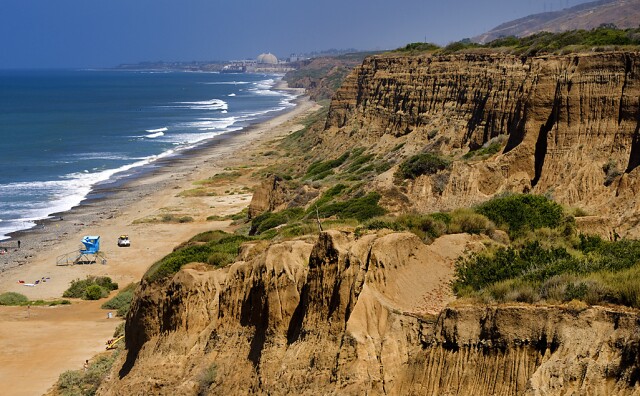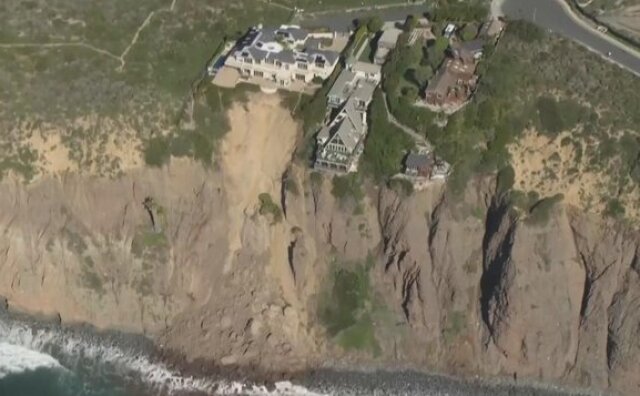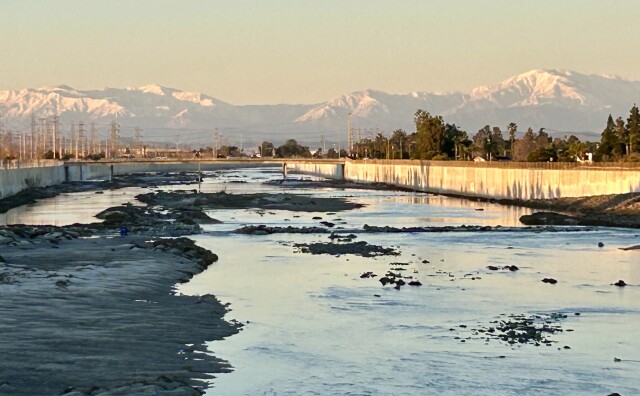Ask LAist: Why Does It Seem Like Earthquakes Happen More When We’re Asleep?

-
A 4.2 quake early Wednesday morning off the coast of Santa Monica and Malibu rattled many folks awake. Which made is think about this question we got back in 2021.
Our newsroom is dedicated to answering the questions that keep you up at night.
Usually, we mean that metaphorically. But this time, we mean it literally.
Sabrina Skacan grew up in San Pedro, so earthquakes aren’t exactly new to her. In fact, she used to sleep through a lot of them. But lately, she has started to notice them more, mostly at night.
And when a series of 4 a.m. quakes woke up much of Southern California — myself included — back in April 2021 she sent me this email:
It seems to me that earthquakes always happen in the middle of the night while we’re sleeping. Or maybe that’s just me when I noticed them? Anyway, just wondering if there’s any truth or science that supports this notion.
I took Skacan’s questions to Susan Hough with the U.S. Geological Survey.
First, Hough told me that nobody's been able to find a correlation between earthquakes and time.
But if that's true, then why does it seem like they tend to strike at night?
I had expected her to show me a bunch of data to answer this, as scientists often do. Instead, she told me a story about March 10, 1933.
-
At LAist, we've thought a lot about how to motivate people to prep for the massive earthquake that's inevitable here in Southern California. We even dedicated an entire podcast to it.
-
We teamed up in 2021 with our friends at the L.A. Times to push Southern Californians to get ready. You can watch that virtual event covering the basics of quake survival. We've also gathered the best of our coverage in a no-nonsense guide to getting ready. No more excuses. Let's do this.
Yes, That Albert Einstein
Albert Einstein — yes, that Albert Einstein — had befriended a seismologist named Beno Gutenberg. It was late in the afternoon, and they had just gotten out of a physics lecture at Caltech. They were walking across campus together when — right before 6 p.m. — an earthquake struck Long Beach.
It wasn’t The Big One, but it was pretty big: 6.4.
“It’s one of the events that generated some of the strongest shaking that’s been experienced in this area,” Hough says.

Even up in Pasadena, where Einstein and Gutenberg were walking at the time, Hough said it still should have caused enough shaking to knock things off of shelves, maybe even break some windows.
But here’s the thing: When Gutenberg got to his seismic lab (remember, he was a prominent seismologist), he didn’t know why everybody was abuzz.
“Neither he nor Albert Einstein had noticed this earthquake that had just struck,” Hough said.
To be completely honest with you, this sounded unbelievable to me. So with the help of the kind people at the Caltech Archives, I listened to an oral history interview with Gutenberg’s wife Hertha — and she confirmed it. In fact, she said the men were literally talking about earthquakes at the time.
“People sort of chuckle at the story, but the point remains that you can miss fairly strong shaking if you’re outside or if you’re walking around,” Hough said. “It’s kind of surprising what people may not notice.”
As it turns out, there are a lot of factors that determine whether you’ll feel an earthquake.
Some are obvious, like whether it’s a big one or not. How close you are to the epicenter matters, too.
And what you’re doing at the time factors in as well.
If you’re in a car, the combination of moving, being outside, and the car’s own suspension system may make it hard to feel a quake, Hough said. Similarly, if you’re outside — like Einstein and Gutenberg were — you might not be able to notice shaking as easily as if you were inside watching things fall off shelves.
So don’t feel bad if you don’t notice the smaller quakes here and there. You’re in good company.
“We don’t feel all that many earthquakes in California,” Hough said, even though they're relatively common.
I used the USGS Earthquake Catalog to graph all the earthquakes magnitude 4 and up in the KPCC/LAist coverage area over the past 100 years. And, as you can see below, they’re pretty evenly distributed throughout all hours of the day. There is, admittedly, a bit of a bump at 6 a.m., though Hough said that isn’t too surprising. Aftershocks could play a part, and the data set might just be a bit too small.
“You might see a cluster just by random chance,” she said.
But if you look at the big picture, at more earthquakes, the way seismologists do, you shouldn’t see significant patterns, Hough said. Earthquakes seem to happen at any hour of the day.
So to answer Sabrina Skacan’s question: Are there more earthquakes happening at night?
Probably not, though if it seems that way, it could be because you’re not driving, reading LAist, or talking to Albert Einstein — like you are during the day. That's why you might be more likely to notice the shaking at night.
-
I am ready and eager to answer more of your questions about life here in Southern California. Use the form below to tell me what’s on your mind. No question is too big or too small, and you may get it answered online in a future story and on air at 89.3 KPCC.
-
The state's parks department is working with stakeholders, including the military, to rebuild the San Onofre road, but no timeline has been given.
-
Built in 1951, the glass-walled chapel is one of L.A.’s few national historic landmarks. This isn’t the first time it has been damaged by landslides.
-
The climate crisis is destabilizing cliffs and making landslides more likely, an expert says.
-
Lifei Huang, 22, went missing near Mt. Baldy on Feb. 4 as the first of two atmospheric rivers was bearing down on the region.
-
Since 2021, volunteers have been planting Joshua tree seedlings in the Mojave Desert burn scar. The next session is slated for later this Spring, according to the National Park Service. Just like previous times, a few camels will be tagging along.
-
There are three main meteorological reasons why L.A. is so smoggy — all of which are affected when a rainstorm passes through and brings clearer skies.










